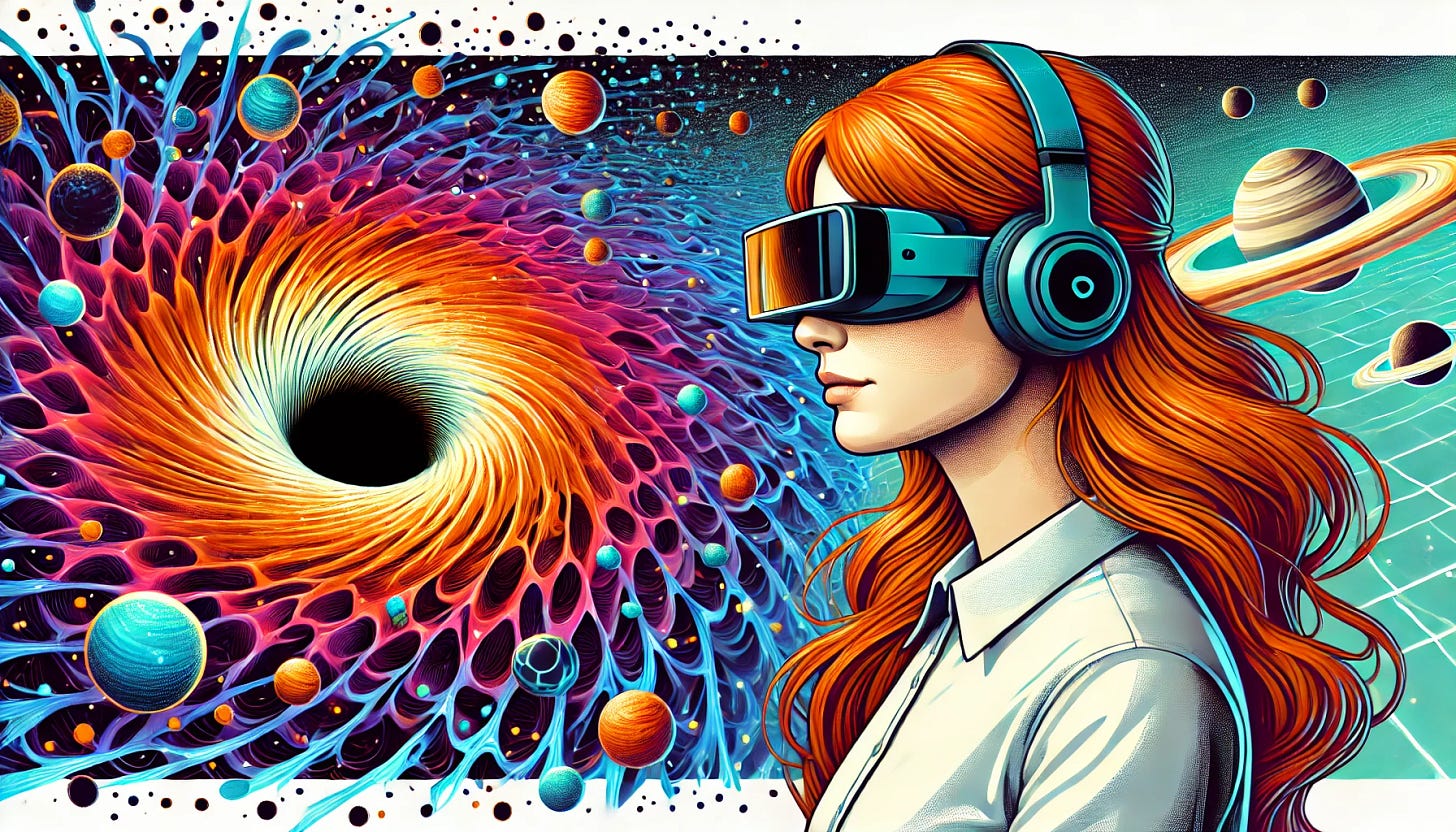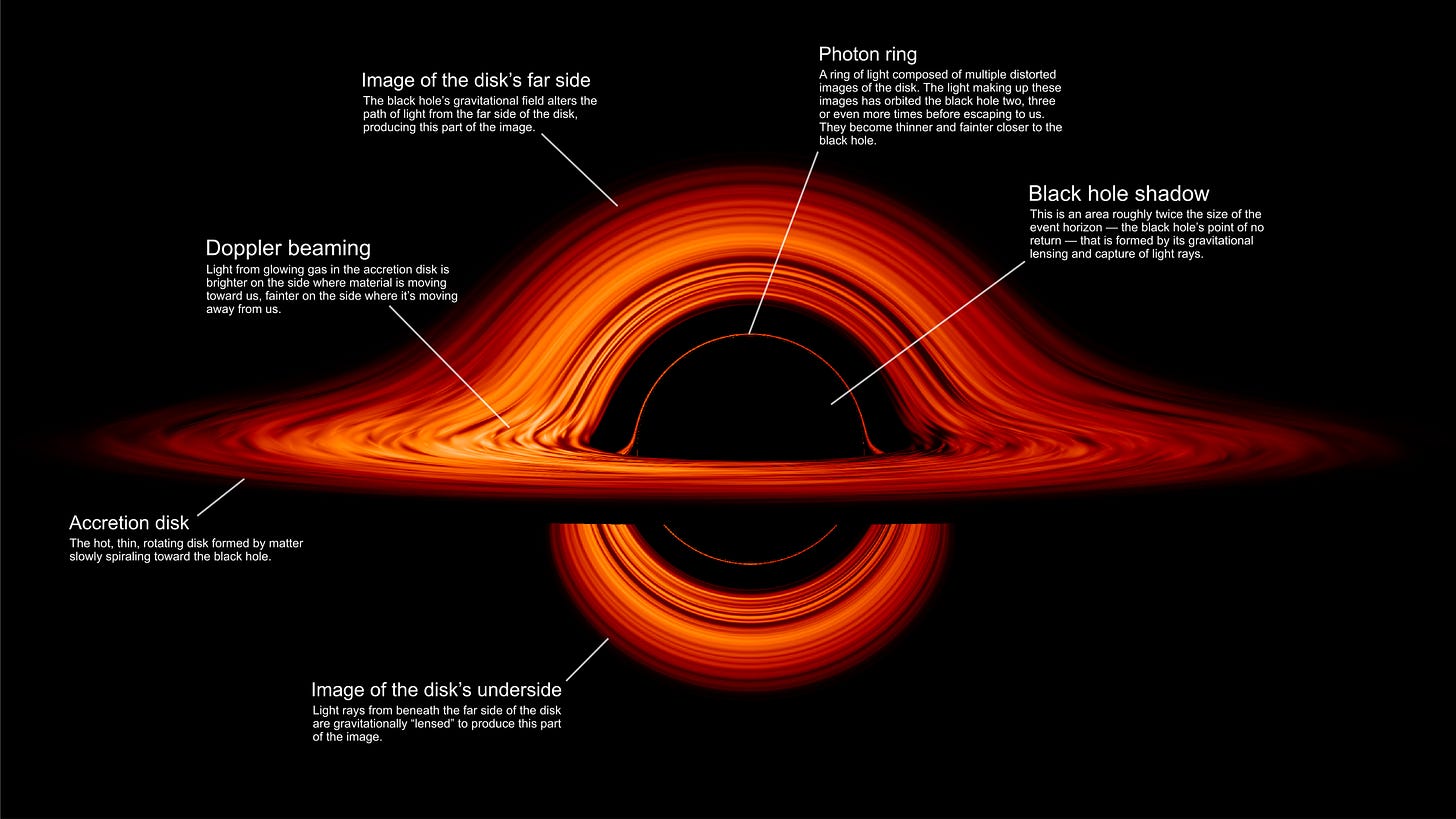🌌 The Universe’s Ultimate Boundaries
In one of the episodes of Cosmic Queries with Dr. Neil deGrasse Tyson and Chuck Nice, Dr. Tyson says:
“The horizon of the universe has all the same properties
as the event horizon of a black hole.”
It got me thinking. Let’s learn a bit more what are the main similarities between black holes and cosmic horizon.
🔸 A Point of No Return
First, let’s talk about black holes, perhaps the most fascinating objects in the universe. Imagine a black hole as a cosmic trap from which nothing can escape - not even light. The event horizon is the boundary surrounding this trap at the Schwarzschild radius. Once anything crosses this line, the gravity becomes so intense, it’s just game over. The event horizon marks the limit of what we can see or know about the inside of the black hole because everything beyond this point is lost to us forever, even light - the source we need to see objects.
🔸 The Edge of the Observable Universe
Now, let’s zoom out as far as we can - to the grand scale of the universe. The cosmic horizon is similar to the event horizon, but instead of being related to a single black hole, it applies to the entire universe. What is it? It represents the furthest distance from which light has been able to reach us since the universe began. But, how can it be? The light is the fastest object in the universe, right? The thing is, the universe is expanding so rapidly that any light or information from beyond the cosmic horizon will never make it to us. Just like the event horizon, the cosmic one marks a boundary - everything beyond is lost forever.
🔸 The Limits of Our Understanding
So, both event horizon of a black hole and the cosmic horizon of the universe represent limits beyond which we cannot obtain information. The event horizon is due to the intense gravitational pull of the black hole, which traps everything inside. Whereas, the cosmic horizon is a consequence of the universe’s expansion, which outpaces the speed of light in those distant regions.
It’s a reminder of the limits of our understanding. The cosmic horizon tells us that there could be much more out there in the universe - more galaxies, more stars, more mysteries - that we will never be able to see or study. Similarly the event horizon of a black hole hides whatever is inside it from us, perhaps containing secrets of the universe that we can only dream about.
So, I was wondering, would we see the event horizon as a cosmic one if we’d lived inside the black hole?
Before we wrap up, I want to make it clear that I’m not a physicist - just someone deeply fascinated by the mysteries of the universe. The ideas and analogies I’ve shared are based on my understanding and interpretations of these incredible concepts. My goal is to spark curiosity and inspire you to explore these topics further, but please do consult expert sources or academic literature if you’re looking for detailed scientific explanations. These are just my thoughts, and I’m always eager to learn more alongside you!
Learn more:
I hope you liked the article. If you have questions or need further clarification, leave a comment below or reach out directly.
✅ Thank you for reading my article on SA Space! I welcome any questions, comments, or suggestions you may have.
Keep Knowledge Flowing by following me for more content on Solutions Architecture, System Design, Data Engineering, Business Analysis, and more. Your engagement is appreciated. 🚀
🔔 You can also follow my work on LinkedIn | Substack | My Resume




